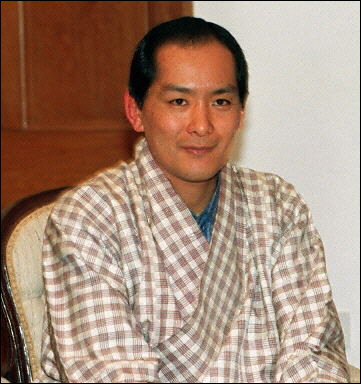
Welcome to the ezine produced by SGI Buddhists that prompts the positive, kindles the constructive, highlights the hopeful and leaves you feeling - well, up!

 Three cheers for the Archbishop of Canterbury! How refreshing to have a public figure who speaks from the heart and is mercifully unswayed by the need to be popular or win votes, writes Julia Stephenson.
Three cheers for the Archbishop of Canterbury! How refreshing to have a public figure who speaks from the heart and is mercifully unswayed by the need to be popular or win votes, writes Julia Stephenson.
In response to the government's risky plan to borrow hundreds of billions of pounds in order to fund a "fiscal stimulus" package of tax cuts including a reduction in VAT meant to encourage people to spend more, the Archbishop told Radio 4's Today programme he was concerned the right lessons had not been learned from the bursting of Britain's credit bubble.
He said: "I worry about that because it seems a little bit like the addict returning to the drug."
He added: "What I'm worried about is anything that pushes us straight back into the kind of spiral we were in before.
"It is about what is sustainable in the long term and if this is going to drive us back into the same spin, I do not think that is going to help us."
Calling for a "new perspective" on questions of wealth and consumption, Dr Williams said people should not "spend to save the economy", but instead spend for "human reasons" such as providing for their own needs.
But unfortunately the government doesn’t want us to shop less, while the media colludes by avidly reporting whether retailers are having a ‘good’ or ‘bad’ Christmas and uses this as a yardstick with which to judge the general well-being and success of the nation. More shopping equals more GDP (gross domestic product), but this has nothing to do with gross national happiness, the real arbiter of our contentment.
I’m not suggesting we give up shopping overnight but the relentless acquisition of possessions, houses, cars and baubles doesn’t just deplete our wallets it depletes our spirit and environment too.
Bad news for the high street means good news for the planet. Making and packaging all these consumer goods then transporting them around the world uses vast amounts of oil and unleashes equally vast amounts of carbon into the atmosphere.
 I wish Gordon Brown would follow the example of the King of Bhutan (pictured) who believes that gross national happiness is more important than gross national product because "happiness takes precedence over economic prosperity in our national development process."
I wish Gordon Brown would follow the example of the King of Bhutan (pictured) who believes that gross national happiness is more important than gross national product because "happiness takes precedence over economic prosperity in our national development process."
Meanwhile Bhutan’s Prime Minister, Lyonpo Jigmi Thinley, believes an "individual's quest for happiness and inner and outer freedom is the most precious endeavour, society's ideal of governance should promote this."
My blood boils when Britain’s politicians exhort us to spend money we don’t have on products we don’t need. Tom Hodgkinson, editor of The Idler concurs; `if we work less, we will have more time for the things that matter in life - like people. In order to work less, we have to be happier with less money, and to make do with less money we need to want less stuff, be more creative, make our own entertainment, and be more self-sufficient. So, grow your own vegetables, learn to play an instrument, throw parties. Work less and live more, and it will be better for us, for those around us, and for the earth too’.
Incidentally, the best Christmas present I received last year didn’t cost a penny, created zero carbon emissions and brought me more happiness than anything I could have been bought. For a long time I had been bearing umbrage against a member of my family. But instead of dealing with it face to face, this resentment festered in my heart, making me cross and embittered.
And so, unusually affected by festive spirit I decided to drop my grudge and meet my relative for lunch. Within half an hour I’d got everything off my chest, we’d chatted and laughed and all umbrages had melted into thin air. A load had lifted from my shoulders and we both left feeling lighter and brighter. It was the best present ever. It didn’t do much for the economy, Mr Brown won’t be boosted as no baubles were bought, but it did a lot for 2 people’s gross national happiness.


